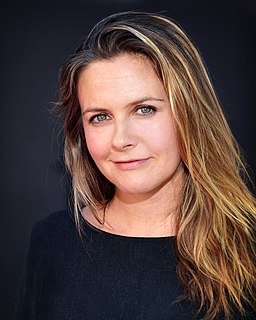A Quote by Gary L. Francione
The most important form of incremental change is the decision by the individual to become vegan. Veganism, or the eschewing of all animal products, is more than a matter of diet or lifestyle; it is a political and moral statement in which the individual accepts the principle of abolition in her own life. Veganism is the one truly abolitionist goal that we can all achieve - and we can achieve it immediately, starting with our next meal.
Quote Topics
Abolition
Abolitionist
Achieve
Animal
Animal Products
Become
Change
Decision
Diet
Form
Goal
Her
Immediately
Important
Incremental
Incremental Change
Individual
Life
Lifestyle
Matter
Meal
Moral
More
Most
Next
Our
Own
Political
Principle
Products
Starting
Statement
Than
The Most Important
Truly
Vegan
Veganism
Which
Related Quotes
I find it very annoying that so many animal advocates talk about the difficulty of being vegan. Many animal advocates are inclined to make the issue their suffering and not the animals' suffering, and I suppose that accounts for part of the reason that veganism is portrayed as such a "sacrifice." And many animal advocates are not vegans, or are "flexible vegans," which means that they do not observe veganism at all or not consistently, and emphasizing the supposed difficulty of veganism is part of justifying their own behavior.
I am a stronger follower of Veganism by principle, not just because of moral and aesthetic reasons. I truly believe in a Vegetarian lifestyle and I have faith and hopes in change in human destiny, thanks to the physical effects and benefits of a healthier diet and its influence on the character of the people. It will bring about some benefit and improvement to human society.
Ethical veganism results in a profound revolution within the individual; a complete rejection of the paradigm of oppression and violence that she has been taught from childhood to accept as the natural order. It changes her life and the lives of those with whom she shares this vision of nonviolence. Ethical veganism is anything but passive; on the contrary, it is the active refusal to cooperate with injustice
In fact, I don't advocate any particular diet for anyone. I think that's a very personal decision that people have to make. I will say this, however: There are more and more studies in terms of the health benefits of veganism; there are more and more studies that are showing that a properly executed vegan diet is highly beneficial for cleansing, for detoxing, in addition to lowering the risks for and even ameliorating chronic illness. We all have our own body constitutions and cultural food ways and personal tastes that determine what will work for us.
There is provided an escape from the narrowness and poverty of the individual life, and the possibility of a life which is other and larger than our own, yet which is most truly our own. For, to be ourselves, we must be more than ourselves. What we call love is, in truth . . . the losing of our individual selves to gain a larger self.
So it is always preferable to discuss the matter of veganism in a non-judgemental way. Remember that to most people, eating flesh or dairy and using animal products such as leather, wool, and silk, is as normal as breathing air or drinking water. A person who consumes dairy or uses animal products is not necessarily or usually what a recent and unpopular American president labelled an "evil doer.
Being vegan truly is the secret to my life's joy and peace. I feel physically and spiritually better than I could have ever imagined knowing that I am doing everything I can to reduce animal suffering with simple lifestyle choices like being vegan, never wearing any products made from animals (like wool and leather), and buying only from companies that NEVER test their products or ingredients on animals.
If you look at the works psychologists have done about individual reports of wellbeing, what happens is that if you're poor, you are not happy. But once you achieve a certain level of material satisfaction then income has very little correlation with people's reported states of happiness, things like climate matter more, things like the culture of the country in which you're raised matter more and so the things really, let's face it, like individual temperament matter more than these things.
I think that veganism is a totally great choice with incredible benefits, but I don't think it's reasonable to expect other people to be vegan or to expect everybody to be vegan. You can proselytize all you want, but being vegan is a pretty intense choice for a lot of people. You can encourage people to eat vegan more, certainly, and I personally eat vegan quite often.






























